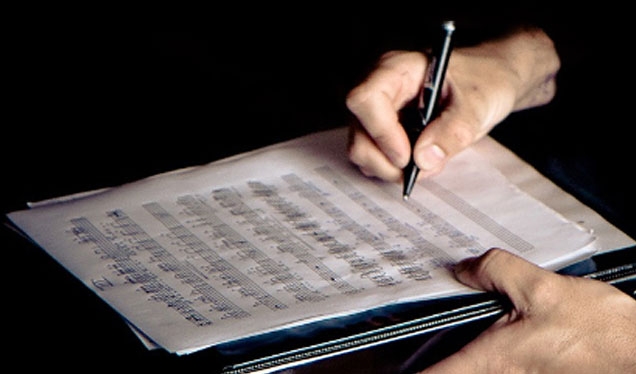Origin From: Total Vocal
Author: Deke Sharon
Date: 2013-06-10
There are endless books on the market about how to write a song, so I'm not going to go into depth. A brief web search will come up with many opinions, perspectives, techniques, models and best practices.
To these, I offer my own tidbits of advice to the first-time a cappella songwriter:
* Write what you know: Pick something meaningful to you that happened, be it an experience, a feeling, a journey, a moment. Do not make the mistake of trying to be clever, as that will be annoying. Do not try to write a general love song, as that will be unfocused. Do not try to write the greatest pop song ever, as you'll collapse under the weight. Just as an essayist should have a thesis she knows about, make something small and personal and real.
* Write with emotion: You're telling a story with this song, and as such the emotional content should be reinforced in your musical and lyrical choices. If you don't care about the song neither will your audience.
* Write for yourself: Don't start writing for other members of your group. Write for yourself. You might find it scary, but you are the one to sing this solo, so put the melody in your range, put the words in your voice. There's no one and nothing to hide behind, and there shouldn't be.
* Keep it simple, keep it short: There is a place for poetry and a place for epic scope. Your first song is almost certainly not that place, just as you should start by writing a short story before you write a novel. Less is more.
* Use another song as a model: Just as many a great symphonic movement was written in sonata form, and many a great American Songbook classic follows Song Form (AABA), you're likely goingto have the easiest time with the tried and true Verse-Chorus-Verse-Chorus-Bridge-Chorus formula (or some variation thereof).
* Repetition is your friend: If you're a music director, if you're a trained musician, your instinct will likely be to try and use your training to write a Steely Dan song. Don't. Limit yourself to a few chords, repeated phrases and motifs. Remember, your audience will be hearing this song for the first time alongside some of your and probably their favorite songs (aka the cover songs that comprise the rest of your set), so you want this to fit in there, go down easy. If you think complexity is the key, you're wrong. Having them leave humming your song is the key. You can add complexity in time, with experience.
* Don't over-arrange it: This will also likely be your instinct, as you want to impress people with the beauty and powerful nuance of your song. However each complex chord will make your group a little less stable. Give your singers relatively easy yet engaging parts so they can reinforce the song's emotion along with you.
* Don't expect too much: My biggest problem when I started painting in high school was that my eye was far more developed than my hand. I knew what I wanted but I couldn't make it happen, and it was frustrating. You likely have a very developed and experienced musical mind, and will be critical of your first song. Don't be. Make something simple and tasty instead of something elaborate that might collapse under its own weight. * Sing and share: until you hear how your song sounds, it's no more than an idea. Perhaps record it (simply, perhaps with piano or guitar) and play it back, to see how it sounds. Play it for friends. Learn it with your group, if you arranged it, or record yourself singing all the parts. The process will help refine and clarify your thoughts, and the feedback you get will be invaluable.
* Do it again: Your first song will not be your best song. Your latest song will likely be your best song. In other words, you'll just get better and better with time. Don't stop with one.
And, if you're stuck, or confused, or not having success
* Write with a partner: There are many people out there who have written songs. No need to go through the process alone the first time. Some of the best songs ever written have multiple names after "music and lyrics by." Better yet, try writing with several partners, as you'll learn from each one's style, each one's approach.
Most of all
* Have fun: There is no pressure, no expectation. If you get good and prolific then yes, there might be some pressure down the line as you're writing for a specific album or label, but that day is far in the future. Jump in, swim around, see what happens, if you don't like this pool, jump in another pool, or a lake, or the ocean.
I just told you to go jump in a lake, didn't I? That's probably as good a place as any to end.






